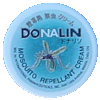There are essentially only two things the visitor to Cebu will need to watch out: dengue fever and diarrhea.
Having said that, Cebu is a tropical place, and some people are very poor. There are probably a lot more germs on public surfaces than in the average northern hemisphere city. The Cebuanos who can afford it usually carry a small bottle of alcohol or alcogel around, to disinfect the hands after touching money or riding a jeep. Rubbing alcohol is sold just about everywhere, and should perhaps be one of the first things to purchase when you arrive.
Cebu continues to have a fairly high incidence of dengue fever, a few thousand cases a year. The disease is horrible but usually not fatal, unless the patient is very young, old, or weak. Dengue is spread by mosquitos. However, it is prevalent not where there are a lot of mosquitos - mosquitos are everywhere anyway - but where there are a lot of poor people living in squalid conditions. Thus most dengue infections can be traced to a visit to the environs of a squatter area; there are almost no instances of dengue infection in the mountain barangays, where people are also poor but the population density less dense and the conditions less squalid.
 I'm not a huge fan of the current administration, but I have to admit Cebu City government is doing a terrific job of combating the dengue curse. All infections are logged and reported by doctors, and a few days after the incidence of infection a municipal team will show up at the victims house to spray the area. The only way to protect yourself, though, is to make sure you don't get stung by mosquitos when in a low-lying low-income neighborhood. Cover your exposed extremities with a mosquito repellent such as Bug-off, or the locally produced Donalin.
I'm not a huge fan of the current administration, but I have to admit Cebu City government is doing a terrific job of combating the dengue curse. All infections are logged and reported by doctors, and a few days after the incidence of infection a municipal team will show up at the victims house to spray the area. The only way to protect yourself, though, is to make sure you don't get stung by mosquitos when in a low-lying low-income neighborhood. Cover your exposed extremities with a mosquito repellent such as Bug-off, or the locally produced Donalin.
Diarrhea, meanwhile, is a bit harder to ward off. Here it is called LBM (for Loose Bowel Movement) and even locals are afflicted from time to time. As in any country nowadays, nobody drinks tap water. Cebu has a water purification industry identical to that of the United States, and water is delivered to households and businesses in five gallon containers.
Most restaurants, even the upscale ones, do not serve purified water to their guests, however. Don't ask for a glass of water, which is free of charge but comes straight from the tap; order mineral water. (In Cebu the term "mineral water" covers both actual mineral water and distilled water.)
You may want to avoid some of the food sold on the street. The fried snacks - tempura or peanuts - are probably safe, but fruit salad and home-made ice cream may be contaminated, so avoid these until you've been in the country for a few months and had a chance to acclimatize.
I have my own little theory of how to protect against LBM, and how to deal with it once you've got it. Eating bland foods, like pasta or crackers, won't work. What you want to do is eat a lot of superhot chilli peppers, which will kill all the evil bugs in your tummy. For example, when dining at a barbecue stall, where hygiene is often questionable, be sure to douse your morsels of chicken or pork in sauce containing several quashed local red chilli peppers. If the stall attendant doesn't give you any local chilli peppers - called sili - ask for them.
The sili are used in numerous dishes of Cebuano cuisine. When eating a kinilaw - the local seafood salad - don't just leave the sili swimming around. Squash them and release the juices. And don't pick your way around the raw ginger. That tastes great too, and I bet it plays a role in cleansing the stomach.
Of course, you may not like spicy food. That would be a great shame, for the tiny local chilli peppers have an aroma entirely of their own; they taste far better than the bland stuff sold under the Tabasco brand name. The sili are one of the things that make life in Cebu better than anywhere else in the world. I personally don't think I'd be able to handle living in a place where the sili plant refuses to grow.


